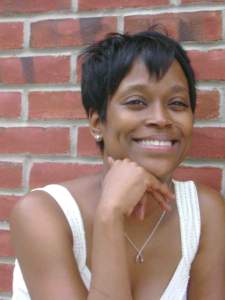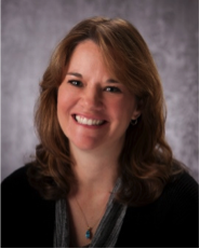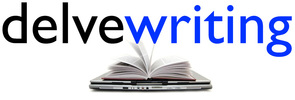Check out PictureBookSummit.com to learn about a truly epic event for writers of children's books. Recordings will be available soon.
Revising and Re-Imagining your Picture Book
with Harold Underdown and Eileen Robinson
 Photograph: Jim Wileman via The Guardian Photograph: Jim Wileman via The Guardian
Picture books are short and simple, written for young children, so they must be easy to write—or so we hear from people who have never attempted one. Picture book writers know that’s not true, but their length does make it more practical to revise them, perhaps multiple times, and even to completely re-think or “re-imagine” them, than when working with longer forms.
That’s what we focused on in this webinar series. As independent editors, and in-house children’s book editors in New York before that, both of us have years of experience in working with writers on picture books. Based on our “Revising and Re-Imagining Your Picture Book” in-person workshop, this series will teach you techniques to help you find problems with your manuscript, reshape it, and then polish it up before you send it out. To give you an idea of what to expect, you can watch the recording of “The Unwritten: What You Don't Say When Writing Picture Books” for free--simply follow the link to register. We gave this webinar on March 18: it includes insights into how picture books work, useful information, and tools, and it doubles as a preview of “Revising and Re-Imagining Your Picture Book Manuscript.” Some of what we covered in the course: Session 1 Using Reader Response Theory to Deepen Our Understanding of How Picture Books Work: After some introductory points about the unique challenges of writing picture books, we will look at the two opposing approaches to understanding literature and explore how to use the least familiar of the two, reader response theory, to enrich your picture book. Session 2 Revising at the Big Picture Level to Get Your Story Working: In this session we will explore ways of seeing your story in a new light—the true meaning of “re-vision.” We will try out techniques from the one-line summary to the story grid. Session 3 Re-Imagining Character and Setting to Find a Fresh Approach: Sometimes there’s nothing much wrong with a story, but it needs a fresh approach. It, or part of it, needs to be re-imagined. In this session we will look into methods to learn more about your main character and how to use different settings to tell a different story. Session 4 Re-Imagining POV and Voice to Find a Fresh Approach: In this session we will continue to re-imagine, this time looking at point of view and voice, and find ways to transform how we are approaching them. Session 5 Revising at the Word Level to Polish Your Story: In this session, we will present and demonstrate self-editing methods that you can use to clean up your manuscript without hiring a copyeditor. Session 6 Discussion, and the State of the Market: In this session we will review the course, answer all remaining questions, and take a look at the current picture book market and how it affects (and doesn’t) what you have to do as writers. We also provided a bonus 7th session, a recording of “Listening to Others… Or Not” from our recent “Editing without an Editor webinar, on critique groups, beta readers, working with children, and how to and how not to pay attention to the market. In each session, we provided a clear framework, examples from current and classic picture books (“touchstone” books), hands-on exercises, handouts and tools, recommended resources, and time for questions and discussion. Every session after the first one opened with examples from the “homework” from the previous week or from critiques (more on those below). We deliberately set this class up as a protected space in which you can feel free to make mistakes, ask questions you worry are stupid, and try out new directions; in this class, there will be no agents sitting in, no pitch sessions, no “opportunities to submit a manuscript” to win, because we want you to be able to focus on your writing and what you are learning in the class without feeling self-conscious and anxious to get it “ready.” This will be six weeks of delving deep into your picture book writing, and we want you to enjoy it. A highly recommended (though not required) book, to help you extend what you learned in the class: Writing Picture Books by Ann Whitford Paul. Useful background on types of picture books can be found in A Family of Readers by Martha Parravano and Roger Sutton. |
Register below to receive the recordings!
Cost: $225 Standard $180 SCBWI Members |
Editing Without an Editor
with Harold Underdown and Eileen Robinson
 Harold Underdown Harold Underdown
Children’s book writers know it’s essential to submit only their best and most polished work to busy editors and agents. More and more, writers are turning to independent editors and writing coaches to help them do that. Harold and Eileen do that kind of work themselves, but they want you to know that many times, you can do the work yourself. You may never need editorial help, or you may only need it at the very end of the process when an editor can be most effective.
|
Price
$125 Standard Registration $99 for Active Members of SCBWI (Note: You'll be asked for the name of your chapter when you register) |
 Eileen Robinson Eileen Robinson
Based on Harold and Eileen's “Editing without an Editor” in-person workshop, this webinar series teaches the basics of editing yourself, on your own or with the help of others. The workshop will give you the confidence and knowledge you need to continue to learn and use self-editing methods.
In the first session, to give you a framework, we compare "reader response" theory and the literary criticism approach, and explore how to use reader response with manuscripts. In the second session, we move to getting feedback from other people, using critique groups and beta readers, and discuss methods for making critique groups work better. In the third session we cover and try out “big-picture” revision techniques for use to find and fix problems in plot, characterization, or pacing. In the fourth session, we move on to “tight focus,” detailed editing, working on your own or with a partner as you put the final polish on a manuscript. In a special “Bonus Track” session to be held after Thanksgiving, we will gather to answer questions, share some of the work that participants did, and give practical examples of some techniques in use. There may be some surprises too. Special critique offers: Both Eileen and Harold are offering three different critique options at special rates to workshop participants:
For additional details on these offers, instructions for signing up, and payment links, go to http://www.kidsbookrevisions.com/workshop-critiques.htm Our backgrounds: Eileen Robinson published both fiction and nonfiction, as an Executive Editor at Scholastic, as well as at Harcourt. She got her start in educational publishing in classroom and school and library and moved on to work with magazines, book clubs, book fairs and Scholastic trade, helping to create product that could work across markets. Now an editorial consultant, she works with both published and unpublished authors on picture books through young adult novels, and helps them strengthen their writing and get published. She also consults with publishers on manuscripts before they go to press. Eileen created the site F1rstPages.com to help authors and partnered with Harold Underdown to provide online tutorials at Kids Book Revisions (kidsbookrevisions.com), where you can get the benefit of two professional editors simultaneously. She recently launched Move Books, a children’s book publisher dedicated to moving boys to read. Harold Underdown is an independent editor; he does critiques, helps to develop manuscripts, and provides other editorial and consulting services for individuals and publishers. Harold wrote The Complete Idiot's Guide to Children's Book Publishing, now in its third edition. He founded and runs "The Purple Crayon," a respected web site with information about the children's publishing world at www.underdown.org. He speaks and gives workshops through the Highlights Foundation, SCBWI's national and regional conferences, and Kid’s Book Revisions (offering online and on-site tutorials and workshops in partnership with Eileen Robinson). He also works as a contributing editor to Children’s Writer’s and Illustrator’s Market. As an in-house editor, he worked at Macmillan, Orchard, and Charlesbridge, and has experience in trade and educational publishing. |
How to Write and Sell Magazine Articles
with Kerrie Flanagan
 Kerrie Flanagan Kerrie Flanagan
Have you ever dreamed of writing for magazines? This class will show you that with the right tools, knowledge and understanding of how the magazine world works, having articles published and being paid for them is definitely possible. During this 4-week bootcamp, you will learn where to find ideas, how to refine them, how to increase your chances of success by studying a magazine, how to write an effective query letter, how to find the right magazine for your idea, and the basics of writing the article and how to remain successful over time. At the end of this course, you will have the tools needed to become a successful freelance magazine writer.
Week 1: Generating Ideas and Researching Markets Week 2: Types of Articles and Writing Guidelines Week 3: Crafting Perfect Queries Week 4: Delivering on Your Promises and Getting New Assignments There will be optional homework assignments each week to help you move from idea to publication. You may opt to receive personal feedback on your assignments from Kerrie for an extra $49. About the Instructor Kerrie Flanagan is the Director of Northern Colorado Writers, a writing consultant, an accomplished freelance writer, author and publisher. Over the past decade she has been published in national and regional publications and enjoyed two years as a contributing editor for Journey magazine. Her articles have appeared in the 2011 Guide to Literary Agents, as well as the 2012, 2013 and the 2014 Writer’s Markets, Writer’s Digest Magazine and The Writer. She was a frequent contributor for WOW! Women on Writing. She is the author of Planes, Trains and Chuck & Eddie, Write Away; A Year of Musing, Motivations and Missions for Writers and the founder of Hot Chocolate Press. Six of her essays are found in various Chicken Soup for The Soul books. Her background in teaching and her passion for helping writers reach their full potential shows through in the workshops she teaches. Since founding Northern Colorado Writers in 2007, Kerrie teaches an average of 20 writing workshops each year. In addition to these classes she offers through NCW, she has also been a presenter at Pikes Peak Writers Conference, the Douglas County Writers Conference, and the Colorado Christian Writers Conference multiple times. She has given talks at the Cheyenne Public Library, the Society of Technical Communicators, the Greeley Library, Red Feather Lakes Library and the Colorado Council of the International Reading Association. Learn more at www.kerrieflanagan.com. |
Price
Course Only: $125 Course + Feedback: $174
|
